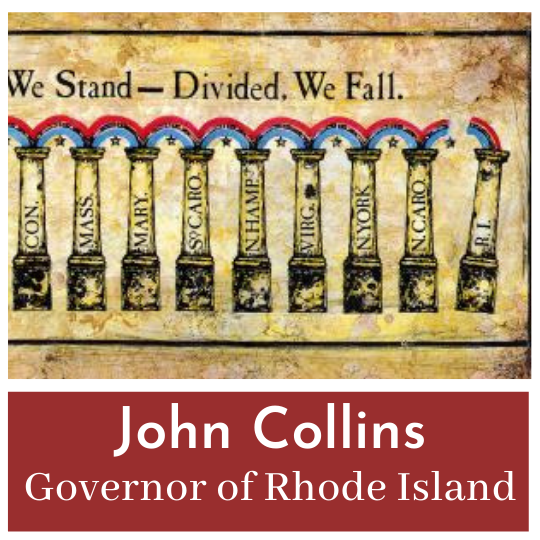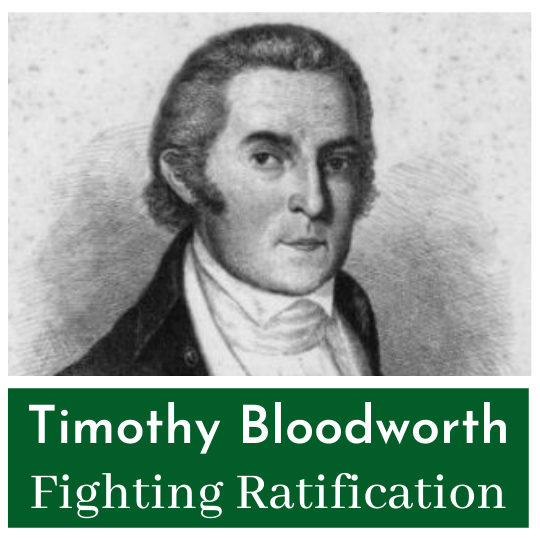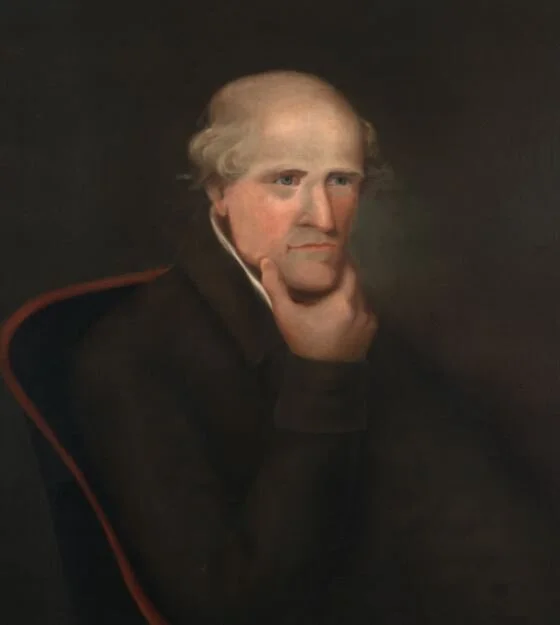John Collins and the Sacrifice of Popularity For Union
John Collins was Governor of Rhode Island during the most turbulent time in the State's history.
Revolutionary War
At the start of the American Revolution, John Collins was a member of the Rhode Island General Assembly.
In 1776, Collins was sent by Rhode Island to meet with General Washington. Collins submitted a letter to the General regarding the conditions of his State. They discussed the best methods of defending Rhode Island and Collins returned with this information. He helped institute the changes recommended by Washington.
Collins would twice serve in the Continental Congress during the Revolutionary War.
Governor
John Collins was elected Governor of Rhode Island and Providence Plantations in 1786. Much of this was due to the support of farmers. Most of the State, at that time, was agrarian and there was a large demand for paper currency. Collins supported this currency and easily won the election.
Early in his tenure as Governor, Rhode Island declined to send delegates to the Constitutional Convention. The State was not interested in giving powers over trade and taxation to the national government.
Rhode Island put off having a Ratification Convention, as specified in the Constitution, for as long as they could. In March 1788, they had a referendum in which all free people of the State could vote. The ballot was overwhelmingly against the Constitution, but a major reason for this is the Federalists boycotted and only half of eligible voters even went to the poles.
Ratification
In January of 1790, John Collins made a fateful decision. He publicly changed his mind and began to support the Constitution.
There are many possible explanations for this. The United States had been established under the Constitution for almost a year. Rhode Island joining the union, whether by embargo, force or other means, may have seemed unavoidable. Also, Collins’ great admiration for now-President Washington may have played a part.
Collins led the call for an official Ratification Convention. The first convention came in March and the Constitution was voted down. A second convention was held in May and this time an extremely close vote (34-32) finally approved the new government.
Congressman
Rhode Island had finally adopted the United States Constitution. They were the last to do so, more than a year after Washington had taken office.
For his decision to support the Federalists, Collins lost his office in the next election. He was replaced by Arthur Fenner, a staunch Anti-Federalist.
Although his popularity had seriously diminished, there was a slight bit of good news. John Collins was elected to the First United States Congress.
Collins never attended the Congress, due to his advanced age and the fact that Rhode Island’s delay meant the term was already almost over.
For a new Founder every day, please subscribe to our email list.
Check out 'Spies in Revolutionary Rhode Island' to learn more about that state during the War. As I've said before, 'Plain, Honest Men' is the book of the month and a great recount of the Constitutional Convention. Pick them up on our affiliate Amazon through the links below and support this site a no additional cost to you.







